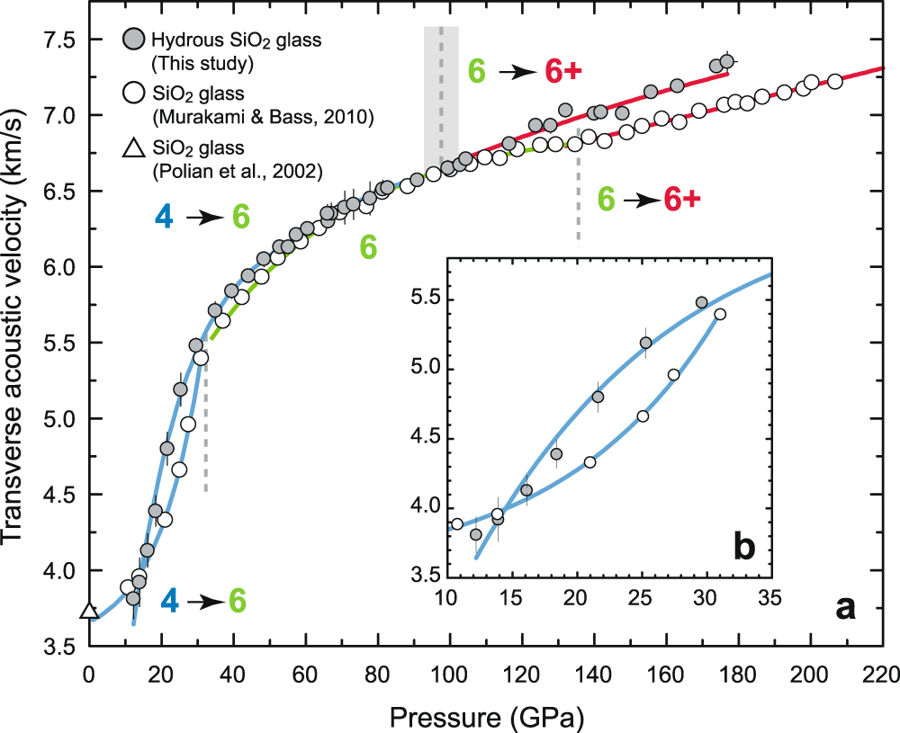Hydrous magmas become stiffer at high pressure
New data on hydrous silica show that hydrous magmas could become stiffer at high pressure and can enhance coordination changes. This changes our views on the stiffness of magmas in the deep Earth and can help to synthesis new material.

Elastic wave velocities of hydrous SiO2 glass measured in-situ up to ultrahigh-pressures of ~180 gigapascals, reveals that the elastic wave velocities of hydrous glass unexpectedly show a rapid increase with pressure and eventually become greater than those of anhydrous glass above ~15 gigapascals. Furthermore, anomalous change in the velocity gradient at ~100 gigapascals, probably caused by the change in Si-O coordination number from 6 to 6+, was also found at ~40 gigapascals lower pressure condition than that previously reported in anhydrous silica glass, implying that water is a highly effective impurity to make SiO2 glass much denser.